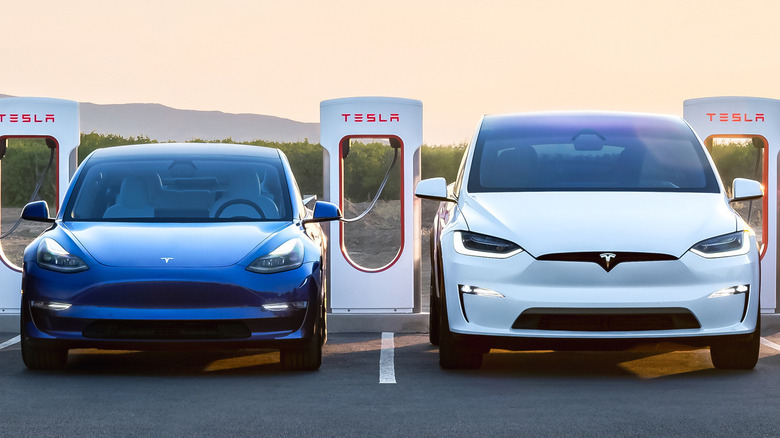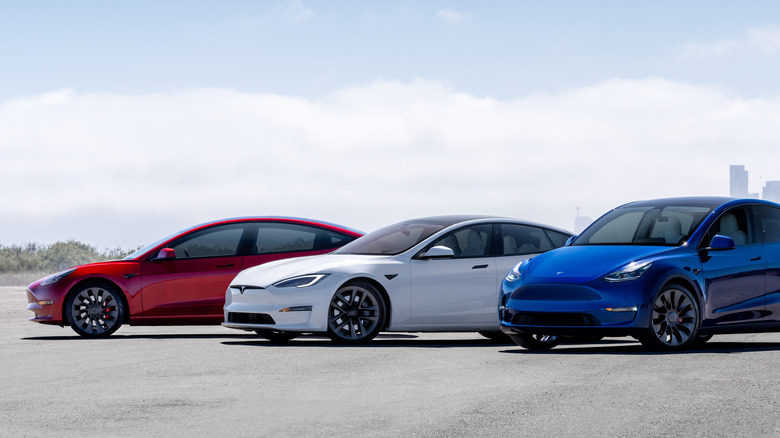Here's What You Need To Know Before Buying A Used Tesla
Even when embroiled in a litany of ongoing investigations, recalls, and general good old-fashioned controversy, Tesla is the name of the game when it comes to wide-market appeal electric vehicles — that is, until companies with longer histories of making mass-produced cars like General Motors and Ford rise up to take the EV crown. Still, it's hard to drive even a few minutes without seeing a Tesla noiselessly scooting around.
Unlike most automakers, Tesla doesn't go by a traditional and outdated dealership model. You can just go to a Tesla Store and buy the car on the spot provided they have it in stock, or you can order it through Tesla's site with most of the lineup taking delivery by early spring. Compare that to another EV like the Ford F-150 Lightning where Ford has been scrambling to get the cars out to dealers. But what if you wanted to buy a used Tesla? Buying used is the best way to save money on a car purchase. Add that to the gas savings you would have with an EV and it wouldn't be a terrible financial decision to make provided the funds are in order.
What to look for when buying a used Tesla
There's good news for the indecisive crowd as Tesla's lineup only currently consists of four cars. Tesla made the Roadster well over a decade ago, but its current lineup represents most of what you would see for sale. There's the mid-size Model 3 that's by far the most common Tesla. The Model Y is the brand's crossover-like vehicle. The Model X is a falcon-winged SUV shaped like a really fast orca. And lastly, there's the Model S, which can accelerate faster than most other production cars that currently exist.
If you don't want to spend a lot of time looking, Tesla itself has a used inventory on its site consisting of cars that have passed the brand's inspection muster. As with all EVs, the battery is the biggest cause of concern and the largest potential headache if it goes bad. All Tesla's used or new are covered by some sort of warranty if purchased directly from Tesla. From the date of manufacture, the battery is covered by eight years or a certain mileage: 100,000 miles for the base Model 3, 120,000 miles for other versions of the Model 3 and all Model Ys, and 150,000 miles for the Model S and X.
If the battery or EV motors go belly up within that period, you should be covered. After that, there is a one-year or 10,000-mile limited warranty. As with all cars, EV or not, make sure you're buying from a reputable dealer or seller and if possible, get a mechanic who specializes in EVs to give the car a look for any potential problems before you purchase.

